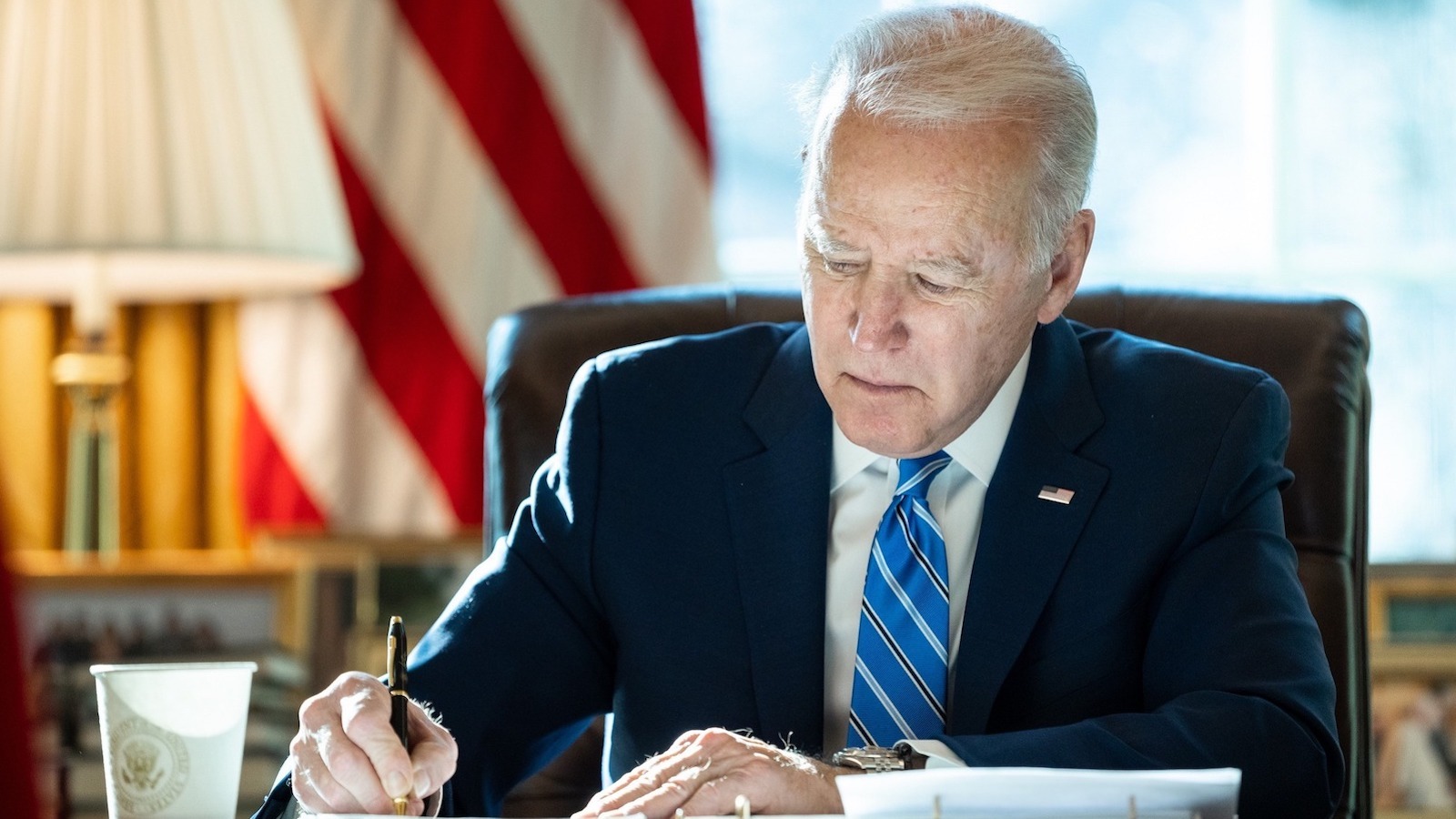President Joe Biden | White House Facebook page
President Joe Biden | White House Facebook page
Louisiana Congresswoman Julia Letlow is clearly no fan of the White House’s current policy on oil and gas leases.
"Because of this administration's energy policies, our reserves are drastically depleted and offshore leasing has slowed to a halt. Increasing domestic production is the long-term solution that will keep Americans from paying outrageous prices at the pump," Letlow recently posted on Twitter.
Under President Joe Biden, the Wall Street Journal (WSJ) reports federal oil leases have produced the lowest amount of domestic oil since the end of World War II. Since he took office up until late last month, data shows the administration leased 126,228 acres of federal land for drilling, compared to previous administrations that have leased no less than 4.4 million acres.
A WSJ graphic from the Bureau of Land Management and Bureau of Ocean Energy Management further highlights the White House has leased 0.13 million acres in his first 19 months, compared to the 12.74 million acres the Bush administration leased over that same timeframe, the 7.25 million acres leased by the Obama administration and the 4.14 million acres leased by the Trump administration.
Even as numbers have sharply decreased from one administration to the next, the WSJ adds leases have “slowed to a trickle,” down a staggering 97% under the Biden administration when compared to what it was under Trump. Further WSJ analysis also details that the 203 federal oil and gas leases under the Biden administration’s first 19 months is 3.2% of that of other presidents.
“Canceling oil and gas leases is part of Biden’s ongoing punishing of the industry including threatening banks for lending and investment,” said Daniel Turner, executive director of the energy workers advocacy group, Power the Future told The Center Square. “We are all living the consequence: Outrageously high prices and growing shortages.”
Critics argue Biden’s plan to move away from fossil fuels has not helped the increasing price at the pump.
In Wisconsin, AAA Gas Prices reports as of Monday, average gas prices were up this year to $3.465/gallon, compared to $3.020 a gallon just a year ago.
Now a candidate for the Wisconsin Senate, democrat Mandela Barnes was appointed to the Governor’s Task Force on Climate Change to seek “environmental justice and economic opportunities in renewable energy and conservation.” With some insisting such a strategy actually serves to limit domestic production of oil and gas, Barnes has not publicly spoken about the president’s ongoing ban on federal oil leases, although he has highlighted his commitment to curtailing fossil fuel production and making the switch to green energy.
According to the University of Wisconsin River Falls, he has also previously argued the "climate crisis is taking a toll on everyone in our state" and that "we must take urgent action."
Over his week in office, Biden made it a point of fulfilling a campaign promise by issuing a moratorium for new federal leases. His executive order was released on Jan. 27, 2020, with a White Press release pointing to the “climate crisis” as the main reason for the moratorium. Biden added “climate considerations shall be an essential element of United States foreign policy and national security,” according to whitehouse.gov. The order lays out ways the administration will prioritize the climate crisis including “pausing new oil and natural gas leases on public lands or in offshore waters pending completion of a comprehensive review.”
S&P Global Vice Chair Daniel Yergin recently told the Wall Street Journal it’s become clear Biden has made the choice to go his own way when it comes to the issue of making federal oil leases on American land an administration priority.
“Whether Democrats or Republicans, presidents have wanted to embrace the idea of energy independence and production,” WSJ reported, adding spiraling gas and energy prices have opened the door for critics to question the administration’s pathway.
“New leases are needed to maintain supply later, potentially helpful in averting future shortages and price surges, energy industry leaders say,” the WSJ reports, adding The Inflation Reduction Act requires “at least 2 million acres of federal land and 60 million offshore acres to oil and gas producers every year for the next decade” with the Interior Department having already indicated it plans to accept the terms of the agreement.
The WSJ adds that “federal leases on gas and oil are potentially helpful in averting future shortages and price surges.”
While some environmentalists back the president’s decision to steer clear of fossil fuel production over the long haul, others criticize senior administration officials for making the choice to slow the leases during what has been such a volatile time of high gas and energy costs. Following Biden’s moratorium on federal oil leases two years ago, United States District Judge Terry Doughty issued a ruling against the moratorium earlier this summer, concluding that the policy violated the Miners Leasing Act (MLA) and the Outer Continental Shelf Lands Act (OCSLA).
“President Biden’s executive order to choke off energy development didn’t just increase prices and hurt American families—it was flatly illegal,” said Montana Attorney General Austin Knudsen. Along with Montana, the ruling applies to 12 other states.


 Alerts Sign-up
Alerts Sign-up